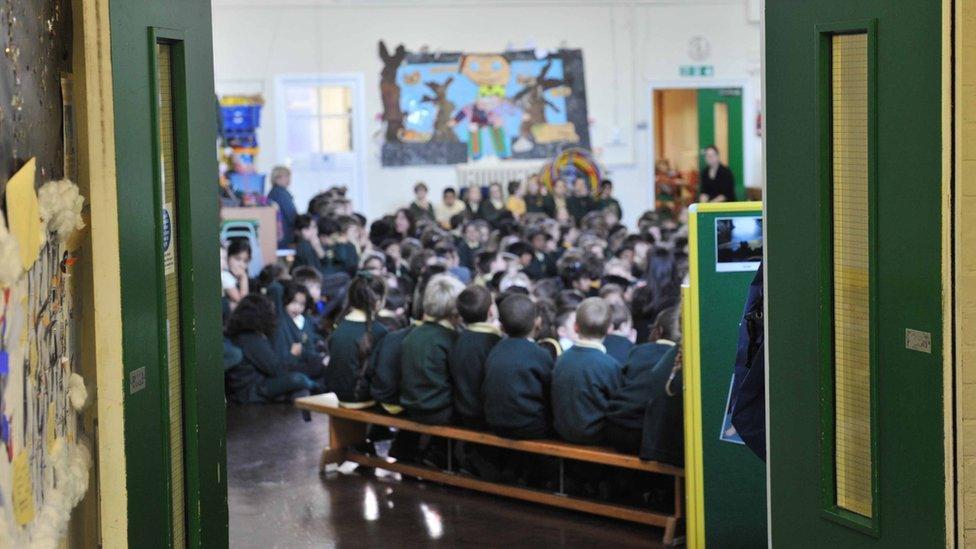Religious ethos of schools 'has no impact' on attainment
- Published

The religious ethos of a school has no impact on tackling the attainment gap between rich and poor pupils, a report has found.
The Institute of Public Policy Research (IPPR) looked at denominational and non-denominational schools to see if there was a difference in performance.
It said 45.96% of pupils in non-faith schools got three Highers or more compared to 45.37% in faith schools.
It called for reforms to be focused on devolved powers and more collaboration.
The report, Autonomy In The Right Place, also found 58.81% of pupils in religious schools meet literacy and numeracy targets, compared to 59.64% in non-religious schools.
Holiday provision
Russell Gunson, director of IPPR Scotland, said: "Once you take account of intake, there is no evidence to suggest that denominational schools, or non-denominational schools see better school performance or attainment.
"It may or may not be the case that different school types add value in other ways, but on the issue of pupil attainment, the hard evidence shows that a religious ethos in itself doesn't make a difference."
He said reforms should instead focus on devolving powers to teachers, parents, heads, pupils, councils and the Scottish government.
The report also recommended the creation of New Regional Educational Partnerships, which would operate across councils to encourage the sharing of good practice.
It suggested increasing breakfast, after-school, weekend and holiday provision for more deprived pupils.
Reforms under way
Deputy First Minister John Swinney said that, as part of reforms, the government was reviewing school governance to help empower schools and engage parents.
He said: "The IPPR report is an important contribution to this debate, which concludes that reform of our schools is essential if we are to close the poverty-related attainment gap.
"I particularly welcome the view that devolution of power over learning to schools should be the default within the education system as that approach is at the heart of the governance review.
"The report also proposes new regional bodies to operate across local authorities in a move that would be similar to our plans for regional boards."
- Published2 December 2016

- Published5 November 2016

- Published7 October 2016

- Published12 September 2016

- Published29 February 2016

- Published13 November 2015
